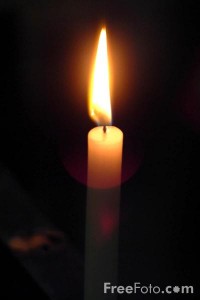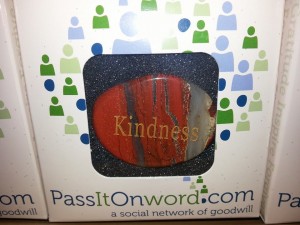“When my Guru died in 1973, I assumed that because of the important part he played in my life, and the love I felt for him, I would be inundated with grief. Surprisingly, I was not. In time, I came to realize why. He and I were so well established in Soul love that, in the years since he left his body, his palpable presence in my life has continued unabated.”-Ram Dass
I was reading an article called Learning To Grieve, written by Ram Dass who is one of my favorite spiritual teachers, a pivotal influence for much of my adult life and who I had the pleasure of interviewing three times- once before his stroke and twice since. That paragraph jumped out at me and may explain why I grieved less intensely than I expected when my parents died. My dad made his transition in 2008 and my mom joined him in 2010. We had a close relationship and they were key teachers of that Soul deep kind of love. One of the things I cherish about them is that they taught me how to live without them. They knew, as did I, that love survives death. Although my mother grieved her mother’s death, she was a part of our lives even beyond the time that she left her body when I was four years old. She was most definitely a Presence throughout my life.
The ring I wear was given to me by my mother before she passed and she inherited it when my grandmother died. The three stones in it have come to represent the three generations we embody. I often hear my parents’ guidance in dream and waking states. When I look in the mirror, I sometimes see glimpses of my mother. When I speak, it is as if they each come through at times. I am better able to let go of the need to have them here in body, when I know clearly that their human containers had worn out. My spiritual beliefs assure me that they are together and that they are well and at peace. As a result, I don’t fear death. It’s not that I am eager to experience it, since I have more work to do on the planet, but that when the time comes, I will be ready to embark on the next phase of this fascinating journey.
Grief looks all kinds of ways. When we let go of something or someone, there is a sense of loss, because we are attached to physical form. We think that this thing, person or animal defines us or is a part of us and without it, we feel less than whole; a fragment of ourselves. I have learned over the years that some day, everyone we love will die or leave us or we will die or leave them. Simple fact, that no amount of denial will alter. It helps me to appreciate them all the more. When the death of a person or relationship occurs, we cry, we feel bereft, or we may feel nothing. Numbness, as a form of protection, until we are ready to face the absence, can happen. Grief response can come in waves. There were some days when I felt despondent in the midst of missing my parents and my husband who died in 1998, and others when I experienced relief that they weren’t suffering, so then neither was I watching them experience it. The most surprising emotion was a sense of exultation, which I call my ‘transfusion from Heaven.’ When Michael died, I had that wave of what was no less than transcendent bliss. I then heard his voice say, in measured tones “This is what Heaven feels like all the time. You don’t have to die to experience it.”
Holidays can be an even more challenging time to lose a loved one or to remember the loss. My mom died the day after Thanksgiving four years ago and Michael died on the Winter Solstice, now going on 16 years. I needed to create a new sense of normal with regard to holiday rituals. Labels that identify our states are sometimes strange. I was widowed at 40 and became an adult orphan at 52.
I have heard that grief is a measure of the depth of love shared between you and the one you are remembering and compassion toward yourself as you heal, is what sustains you through it.
“Grief can be the garden of compassion. If you keep your heart open through everything, your pain can become your greatest ally in your life’s search for love and wisdom.”- Rumi


